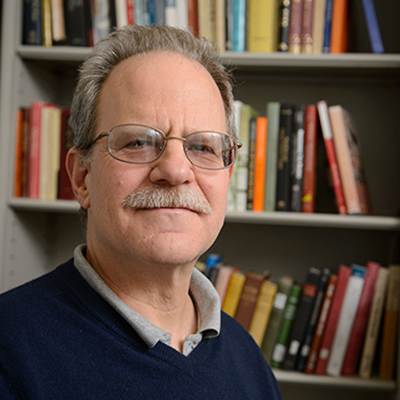Peter Zarrow
Professor
Ph.D., Columbia
Area of Specialty
Modern China; heritage studies; conceptual history and global circulation of ideas
Current Research
In addition to continuing his research on modern Chinese thought and culture, Prof. Zarrow is exploring national heritage in China and Japan, focusing on the Forbidden City and Meiji Shrine. He is also working with Prof.-Dr. Thomas Fröhlich of Hamburg University on a project on the “key texts” of modern Chinese political thought.
Biography
Peter Zarrow was born in Indiana and raised in Indiana and Connecticut. During and after his lengthy and checkered undergraduate career, which included a semester at UConn and a year in Taiwan, Zarrow worked as a newspaper reporter in Willimantic and in the then-pioneering field of computer publishing in San Francisco and New York. He did his graduate work at Columbia University in Chinese history. He has taught at Vanderbilt University and the University of New South Wales (Sydney, Australia), and between 2001 and 2013 served as a research fellow and deputy director in the Institute of Modern History, Academia Sinica (Taipei, Taiwan). He has been a visiting professor or research fellow at École des hautes études en sciences sociales, Paris; Si-Mian Institute for Advanced Studies in the Humanities, East China Normal University, Shanghai; International Research Center for Japanese Studies, Kyoto; British Academy and London School of Economics; Institute for Advanced Studies, Princeton; and he has held the Dr. Hu Shih Memorial Chair, Academia Sinica; the University of Sydney China Distinguished Fellowship; and a fellowship at the Humanities Institute at UConn.
Selected Publications
Abolishing Boundaries: Global Utopias in the Formation of Modern Chinese Political Thought, 1880-1940 (SUNY Press, 2021).
Educating China: Knowledge, Society and Textbooks in a Modernizing World, 1902–1937, Cambridge University Press 2015.
After Empire: The Conceptual Transformation of the Chinese State, 1885-1924, Stanford University Press, 2012.
China in War and Revolution, 1895-1949, Routledge Press, 2005.
Anarchism and Chinese Political Culture, Columbia University Press, 1990.
沙培德,《战争与革命:交织的近代中国》[translation of China in War and Revolution, trans. 高波], 中国人民大学出版社, 2016.
沙培德 編,《近代中國新知識的建構》[The construction of new knowledge in modern China],中央研究院,2013.
“Liberalism and Utopianism in the New Culture Movement: Case Studies of Chen Duxiu and Hu Shi,” pp. 36-52 in David Der-wei Wang, Angelia Ki Che Leung, and Zhang Yinde, eds., Utopia and Utopianism in the Contemporary Chinese Context, Hong Kong University Press, Hong Kong, 2020.
“Adventures of “Utopia’ (烏托邦) in Republican China: Setting the Stage for May Fourth Idealism,” 《思想史》Intellectual History (Taipei) no. 9 (December 2019), pp. 265-312.
“A Question of Civil Religion: Three Case Studies in the Intellectual History of ‘May Fourth’,” Twentieth Century China vol. 44, no. 2 (May 2019), pp. 150-160.
“New Culture Liberalism: Perspectives from the Study of Transnational Concepts,” 《思想史》Intellectual History (Taipei) no. 8 (December 2018), pp. 149-215.
“Felling a Dynasty, Founding a Republic,” pp. 90-117 in Jeffrey N. Wasserstrom, ed., The Oxford Illustrated History of Modern China, Oxford University Press, Oxford, 2016.
“Discipline and Narrative: Chinese History Textbooks in the Early Twentieth Century,” pp. 169-207 in Brian Moloughney and Peter Zarrow, eds., Transforming History: The Making of a Modern Academic Discipline in Twentieth-Century China, Chinese University Press, Hong Kong, 2011.
“Chinese Conceptions of the State during the Late Qing Dynasty (1860-1911),” pp. 235-259 in Takashi Shogimen and Cary J. Nederman, eds., Western Political Thought in Dialogue with Asia, Lexington Books/Roman and Littlefield, 2009.
“Anti-Despotism and ‘Rights Talk’: The Intellectual Origins of Modern Human Rights Thinking in the Late Qing,” Modern China, vol. 34, no. 2 (April 2008), pp. 179-209.
“Liang Qichao and the Conceptualization of ‘Race’ in Late Qing China,” Bulletin of the Institute of Modern History, Academia Sinica 52 (June 2006), pp. 113-164.
“Historical Trauma: Anti-Manchuism and Memories of Atrocity in Late Qing China,” History and Memory, vol. 16, no. 2 (fall/winter 2004), pp. 67-107.
“‘Of benefit to the ruler; of benefit to the people’: Official discussions of constitutionalism in the late Qing” (in Chinese), Bulletin of the Institute of Modern History, Academia Sinica 42 (December 2003), pp. 47-71.
“The Reform Movement, the Monarchy, and Political Modernity,” pp. 17-47 in Rebecca Karl and Peter Zarrow, eds., Rethinking the Reform Movement of 1898: Political and Cultural Change in Modern China, Harvard University Asia Center Publications, 2002.
沙培德,〈型塑辛亥革命的叙述架构〉,《辛亥革命与百年中国, 1911-2011 : 纪念辛亥革命一百周年国际学术研讨会论文集》,社会科学文献出版社,2016 ,頁971-989.
〈啟發近代中國烏托邦思想的原動力(1890~1940)〉,《知識饗宴系列 11》,中央研究院,2015,頁173-204.
〈敘事與教誨:教科書中的知識傳遞(1902-1937)〉,《近代中國新知識的建構》》,中央研究院,2013,頁231-270.
〈伦理教科书:民初学校教育里的修身与公民道德〉,《多维视野中国的个人、国家与天下认同》,华东师范大学出版社 , 2013,頁214-242.
〈民權思想與先鋒主義:民國時期孫中山的政治主張〉,《中央研究院近代史研究所集刊》78 (2012年12月),頁1-28.
〈清末的國家觀:君權、民權與正當性〉,《權威的理由:中西政治思想與正當性觀念》新星出版社 , 2008,頁126-163;《現代中國思想的核心觀念》, 上海人民出版社, 2010,頁367-388.
〈「利於君,利於民」:晚清官員對立憲之議論〉,《中央研究院近代史研究所集刊》42 (2003年 12月),頁47-71.
〈溥儀被逐出宮記:一九二0年代的中國文化與歷史記憶〉,《一九二0年代的中國》(中國現代史專題研究報告弟二十三輯,中華民國史料研究中心編印 , 2002,頁 1-32.

| peter.zarrow@uconn.edu | |
| Phone | 860-486-0649 |
| Fax | 860-486-0641 |
| Mailing Address | 241 Glenbrook Road, U-4103, Storrs CT 06269 |
| Office Location | Wood Hall, Rm 327 |
| Campus | Campus: Storrs |
| Office Hours | Spring 2024: Thu 3-4pm and by appointment |